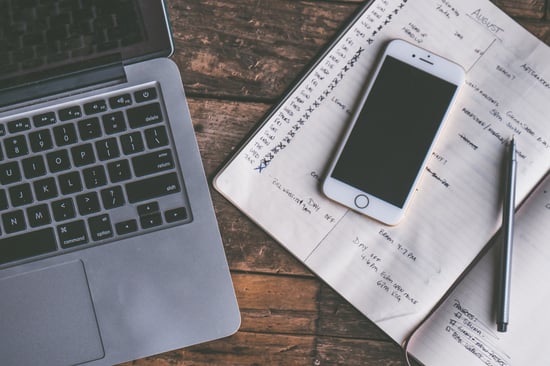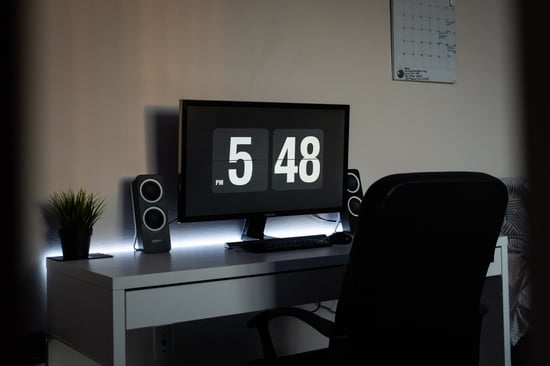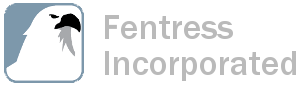Almost three years ago I wrote a blog about time management in the home office. It resonated with many people, not so much because it was about the home office, but because it was about time management. Fast forward three years, and many people who never imagined they'd be working from home are doing just that. So I figured it was time to dust off the old blog and provide an updated COVID version in the hopes that it may help those of you struggling to manage your time while teleworking from home.
How Do You Do It?
Over the years, I've been asked by many people how I can work in a home office with all its distractions and lack of structure. The truth is that I've had to learn what works best for me. I've been working from home for almost 23 years - since November 1997! (To put this in perspective, Bill Clinton was only in the first year of his second term at that time!) I think I've experienced pretty much everything a home office can bring during these years. It did take me some time to get into a good groove. But now that I'm in a groove (I would hope so after 23 years!), I wouldn't have it any other way.
I'd like to share just a few of the secrets I've learned over the years about managing time in the home office - or in any other setting in which you need to be productive.
Block your Time
When you work from home, people often don't realize you're actually working. You're home, and they think you have free time. Your child may ask you to make his lunch, your friend may ask you to meet for coffee, or your spouse may ask you to take care of a household errand. You may be tempted to manage both home and work during your work day. While it's usually possible to add some non-work activities into your work day, trying to juggle large amounts of unscheduled time will likely lead to giving second-best to both home and work.
The first secret is in time blocking. Use your calendar (phone app, daytimer, etc.) to structure your day in increments as needed - one hour, 30 minutes, 15 minutes, etc. Block out your most important work activities first. Then add the other important work that must get done. If there are household chores or non-work tasks you'd like to take care of, schedule these in for breaks. Maybe you could run to the grocery store at lunchtime. Or put dinner in the crockpot after a long conference call. Block your time, then follow your plan - with some flexibility of course.

If you're having trouble sticking to your schedule, consider whether your timeframes are realistic. Are you trying to squeeze in too much? If so, adjust as necessary. I also suggest setting a timer to hold you accountable to the time limits you set for tasks that have no clear end point. When the timer goes off, it's time to switch to your next task or adjust your schedule as needed. You may also want to keep your schedule accessible to family members so they know when you will have free time.
By the way, planned mental health breaks are also important in keeping our energy levels high. It's important to get up and do something different for even five minutes every now and then to refresh ourselves and to change our state. Knowing you have something to look forward to in the near future lessens the dread of difficult work and helps you stay focused on the task at hand. And you may find that while you're relaxing, your subconscious mind is providing clear, almost effortless direction to the work back at your desk.
If you block your time in realistic, manageable chunks, and then let your schedule guide you throughout your day, I think you'll find that you can get way more done in one eight-hour work day than you ever dreamed possible.
Plug Energy Leaks
When there's a task we really don't want to do, we often set it aside for "later." Yes, we procrastinate. As we continue in our procrastination, thoughts of the task fly by and cause us stress, whether it's on our conscious or subconscious level. We then seek ways to escape this feeling of dread. Maybe we scroll Instagram, eat a bowl of ice cream, or even take a nap! (Hopefully not on work time, but you never know!) The point is that we put the task off and try to distract ourselves with something we would much rather do.
As the deadline tightens, the task becomes more urgent and we start to feel the stress of it. Many of us unknowingly rely on this stress to motivate us to get the job done - it's as if we need to feel the heat before we are moved to action. But in the meantime, we spend a lot of time in dread, and we often end up having to sacrifice personal time to get the job done.
These tasks that hang over our heads are energy leaks. An energy leak is "any incomplete task, to-do, idea, or memory that drains your energy – even a little bit – when you think of it, or when you see it." This is the unfinished business in our lives - the baskets full of laundry, the unwritten note, the difficult conversation, the project due on Friday. These leaks are usually not felt consciously, but they can have a massive effect on our energy levels and productivity.

When you work from home, you are likely to be surrounded by energy leaks. The more you can plug them, the better your mindset will be as you sit down to get your work accomplished. Use your time-blocking system to plan time to address your energy leaks.
Plan for Guilt-Free Down Time
Leisure time is extremely important, but it must be guilt-free to be truly rewarding. Elevate the importance of guilt-free leisure time and make it the ultimate prize at the end of a job well done. Instead of seeing a work task as a barrier between you and your free time, see the task as the means to achieving guilt-free down time. Reframe your thoughts in ways such as this:
- Replace “This project is so big, I’ll never finish” with “I'll take one step in the right direction and be that much closer to free time.”
- Replace “I have to do this perfectly” with “I'll do my best. After a break, I can take another look to see if there are ways I can improve it.”
- Replace “I can’t relax till this is done” with “I’ll make some progress then take a quick break to recharge.”
When we take breaks before we have really earned them, we can't fully enjoy the breaks. When we work hard and give it our best, we can relax knowing we gave 100%.

Take your Thoughts Captive
Just as we don't leave our emotions and personal lives at home when we drive to a traditional office, we don't leave them down the hallway when we work in a home office either. Thoughts pop into our heads throughout the day that can interrupt our work flow and distract us from the work at hand. This is often intensified when we work at home and cannot physically escape the environment that may have caused us to be distracted in the first place.
It can be all too tempting, especially when you work in a home office, to attend to the tyranny of the urgent – in this case, any task that pops up that is unrelated to the work task in front of you. If you realize you have a bill to pay or need to change a lightbulb, write it down to relieve yourself of the mental burden of having to remember it. Keep a notepad by your desk, or use one of the many phone apps created for this purpose. The point is to write it down and deal with it later.
When random thoughts arrive and you begin to find yourself daydreaming, take those thoughts captive too. Either let them fly on by, or jot them down if you want to follow up later.
Occasionally, life overwhelms us and strong emotions take over, making it difficult to focus on our work. For the home office worker, these times can be especially isolating and challenging. It's important to deal with these strong emotions, even if for five minutes. Think through the emotions and process them. Identify what's troubling you the most, and consider jotting down some positive encouragements or ways you could cope with the situation or seek support when time allows. The important thing is to manage your emotions so your emotions don’t manage you...and your time.
Resource Up as Needed
It's been said that time is our most precious commodity. Yet we often try to do it all ourselves, and we lose precious time in the process. It's clear from the choices we make that many of us elevate financial freedom above time freedom. One thing I've become convinced of lately is the importance of finding ways to "resource up" - i.e., to find others who can take care of or support me in tasks that leak my energy so that I can focus on the tasks I really need to focus on - both at work and at home.
Maybe it's hiring a housecleaner, ordering some meals from a healthy meal service, doing curbside grocery pick-up, or delegating a lingering task to someone else you work with who is perfectly capable of completing the task. We must get out of the mindset that we can do it all - i.e., take care of the house, yard, family, and job while keeping up with our friendships, fitness, volunteer commitments, community activities, personal growth, and hobbies, to name a few. When we find a resource that can help take an important but time-consuming task off our list, we gain time freedom. And we are much more likely to be productive in our jobs, too.
Make the Most of your Home Office Experience
You may be pulling your hair out at times as you try to keep all the home office balls in the air. But working from home can be an opportunity to get more rest, spend more time with family, and achieve a better work-life balance. Once the COVID pandemic subsides and offices open back up more fully, you may miss your home office. Solid time management may be the missing piece that makes your home office experience the best it can be. I challenge you to use the tips in this blog and watch your time - and productivity - multiply.




.jpg)

.png)
.png)
/Employee%20Autonomy%20Part%202%20(Blog%20Title).png)
.jpg)


.jpg)
.jpg)
.jpg)
.jpg)
.jpg)
.jpg)
-1.jpg)
.jpg)

